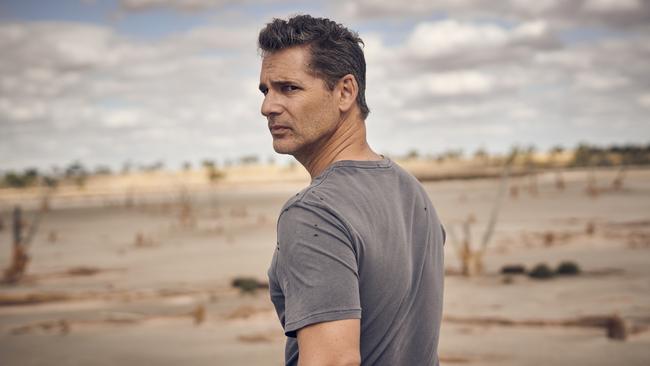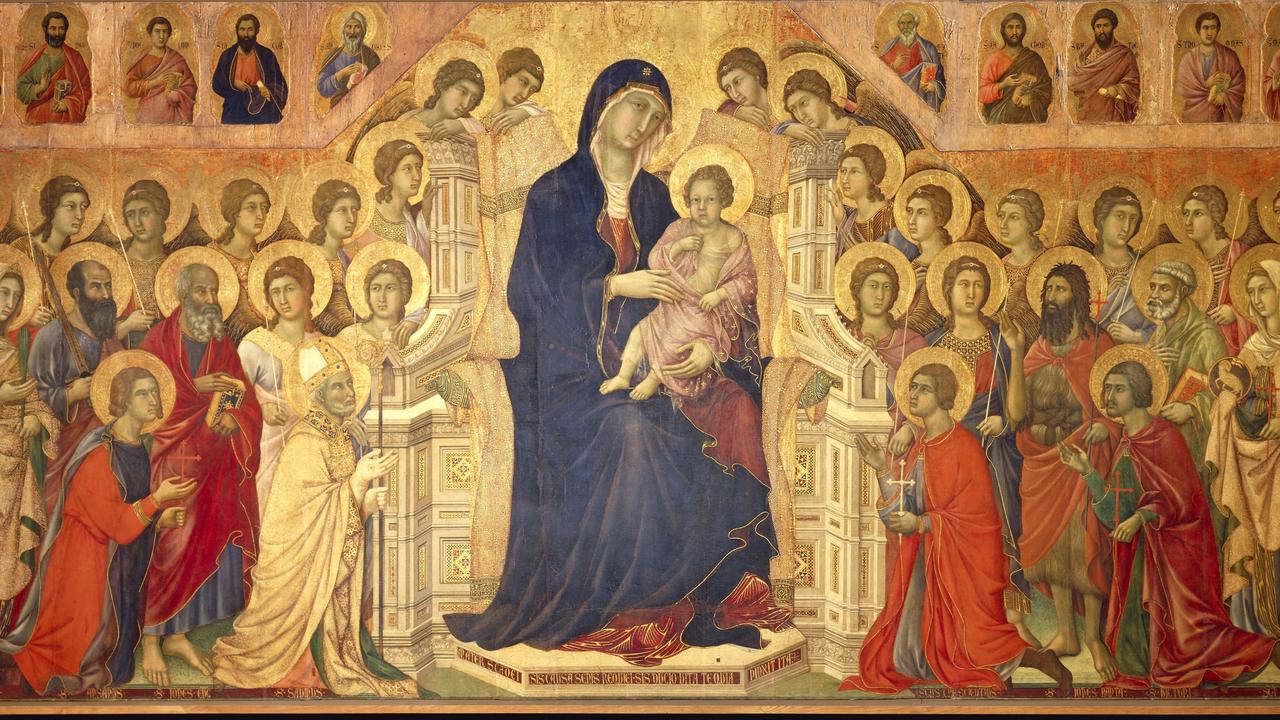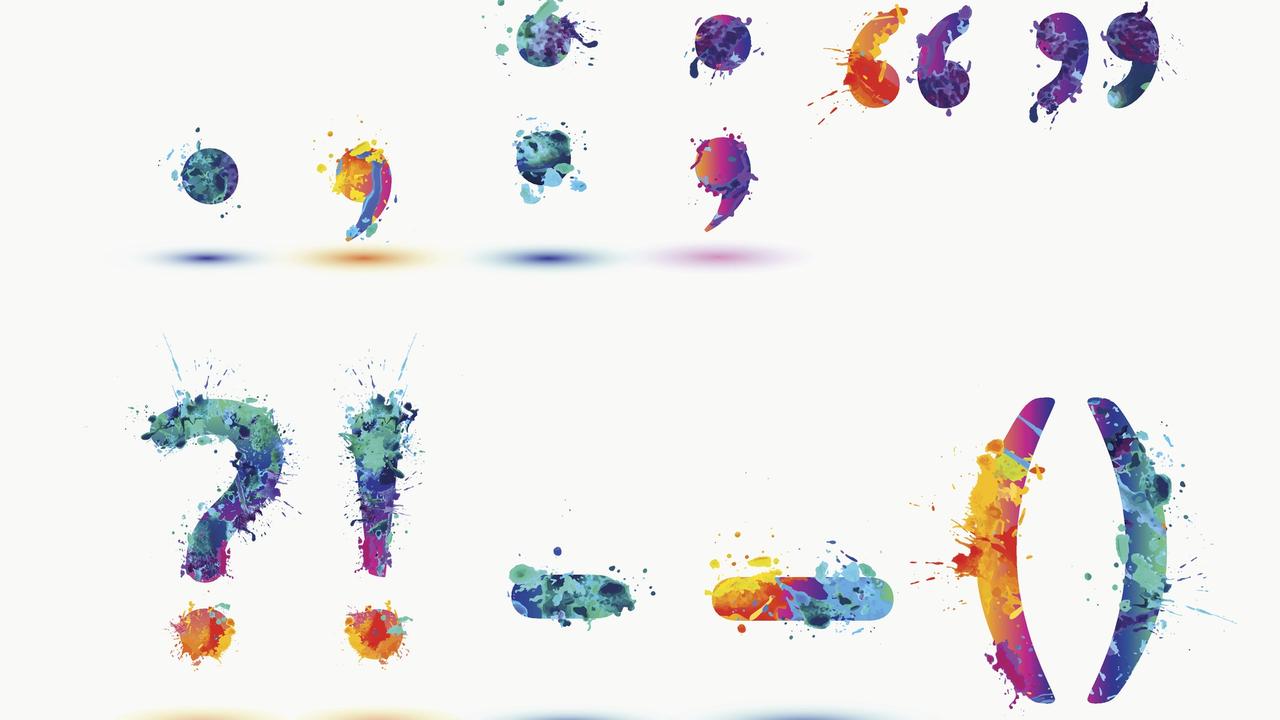Eric Bana stars in The Dry, an exceptional new film
The Dry is the best work yet from director Robert Connolly, who previously made The Bank (2001), Three Dollars (2005) and Balibo (2009).

The Dry (MA15+)
Previews now; wide national release from Jan 1
★★★★
I came across Jane Harper’s first novel, The Dry, in a bookstore in Dublin and read it avidly; it was clear from the start that it would make a very good film and indeed it has — it’s the best work yet from director Robert Connolly, who previously made The Bank (2001), Three Dollars (2005) and Balibo (2009).
It is also difficult to imagine any actor other than Eric Bana in the role of federal cop Aaron Falk, who returns to his home town in rural Victoria following a 20-year absence after his boyhood best friend dies in a violent apparent murder-suicide.
The small town of Kiewarra has not seen rain for 324 days; some locals think that’s why Luke Hadler, a local farmer, shot his wife and son and then himself. But did he really do it? His grieving parents, Barb (Julia Blake) and Gerry (Bruce Spence), are certain that he didn’t, and they beg Falk to help them prove it. Falk decides to stay in town for a few days at the local pub and do a little investigating, with the co-operation of Sergeant Greg Raco (Keir O’Donnell), the local cop. Falk is also happy to resume a close relationship with Gretchen (Genevieve O’Reilly), who was Luke’s girlfriend when they were teenagers and who was present on the fateful day that Falk’s girlfriend, Ellie Deacon (BeBe Bettencourt), drowned in the river that is now a dried-up scar on the landscape. (Joe Klocek plays Aaron, Sam Corlett Luke and Claude Scott-Mitchell Gretchen in the judiciously interposed flashback sequences.)
The last person to see Luke alive was Jamie (James Frecheville), another farmer; they’d gone rabbit shooting together, and Jamie appears to have found nothing particularly unusual about the man who, shortly afterwards, would apparently kill three people. Karen, the murdered wife, worked at the local school, but headmaster Scott Whitlam (John Polson) doesn’t have a great deal of useful information about her or her husband; she was upset over money, is the best he has to offer. On the other hand, Mal Deacon (William Zappa) and his cousin Grant (Matt Nable) seem angered by Falk’s presence in town, but does that have to do with the present case or is it related to what happened to Ellie Deacon all those years ago?
And is it possible that the deaths, 20 years apart, are somehow connected?
The case is officially closed but there are still questions unanswered. Raco can’t find the source of the bullets that Luke allegedly used to kill himself and his family, and the local doctor, Leigh (Daniel Frederiksen), seems to be holding something back. As with all good whodunits, there are plenty of suspects and plenty of colourful characters — though in this case the background of a town and a district in crisis (the film was shot in the Wimmera region of Victoria) adds considerably to the drama.
Bana is perfect as Falk, O’Reilly lends a warm presence to the role of Gretchen, and the rest of the very well-cast ensemble is excellent. Outstanding, too, is the cinematography by Stefan Duscio.
If you enjoyed Harper’s book, you’ll be very pleased with this faithful, gripping screen adaptation. If you haven’t read the book, Connolly’s film can be warmly recommended on its own terms as a suspenseful mystery thriller. I realise that there are heaps of such programs on television these days, but The Dry is a superior example of the genre.
-
Nomadland (M)
Limited release
★★★★½
The “nomads” we meet in Beijing-born director Chloe Zhao’s exceptional Nomadland are unlike the “grey nomads” of Australia. The latter, who are retirees, for the most part travel the country in the comfort of well-equipped recreational vehicles, but the American nomads in Zhao’s film have little in the way of comfort and they’re not retired.
We meet them as they cross paths with Fern (Frances McDormand), a 60-ish widow who has been uprooted from the house in the tiny town of Empire, Nevada, where she lived with her husband, because the United States Gypsum Corporation, where the husband worked and which owned the house in which they lived, closed its mine there in 2011. Instead of wallowing in self-pity, the tough and determined woman has taken to the road in a small van equipped with the most basic requirements for living — a bed, a stove. “I’m not homeless,” she insists. “I’m houseless.”
Fern’s odyssey starts in the chilly wastes of Nevada, but during the course of this magnificently filmed movie she travels across much of America’s west and midwest: South Dakota, Arizona, California and Nebraska.
At every stop she seeks, and usually finds, temporary work: her jobs include assembling orders in an Amazon warehouse, cleaning toilets at a campsite, harvesting beetroot and working in the kitchen of a fast-food restaurant. And at every stop she meets fellow nomads, most of whom are played by non-professional actors who appear, more or less, as themselves.
These include Bob Wells, a mild-mannered evangelist; Linda May, a kindly woman; Swankie, a woman dying of cancer who consoles herself with memories of the wonderful places she has visited during her life; and Derek Endres, a young drifter who is far from home — on the second occasion they meet Fern recites a Shakespeare sonnet to him.
Life on the road has plenty of pluses — the magnificent, stark, rugged scenery for one — but also, of course, minuses. A flat tyre is one thing, but when the van breaks down altogether Fern is forced to abandon it temporarily and to seek help from her sister Dolly (Melissa Smith), who can’t understand her lifestyle but who tells her: “You were braver and more honest than everyone else.”
One of Fern’s fellow nomads is played by a professional actor, the always excellent David Strathairn, who befriends Fern and who, when he decides to cease travelling and to move in with his son and his family, tries to persuade Fern to join him. (Thanksgiving, which she celebrates there, is joyful but clearly inhibiting for Fern, who cherishes her independence.)
More than most road movies, this is a series of brief encounters, of short, intense friendships and sad farewells. As Wells says, “I’ll see you down the road.”
The film is based on a nonfiction book, Nomadland: Surviving America in the 21st Century, by Jessica Bruder. Published in 2017, the book largely consists of interviews with nomads, several of whom appear in Zhao’s film.
This is the third feature Zhao has made set in America’s West (the second, The Rider, received limited release in Australia a while ago). The director has a keen eye for landscape and a relaxed skill in juxtaposing fiction with fact, actors with non-actors. The total realism of the performances and the authenticity of their stories help make this Venice Golden Lion winner an exceptional film. (Zhao has since completed a Marvel comic extravaganza, Eternals, which has to be a huge departure for her.)
The film ends with a dedication: “To the ones who had to depart. See you down the road.”



